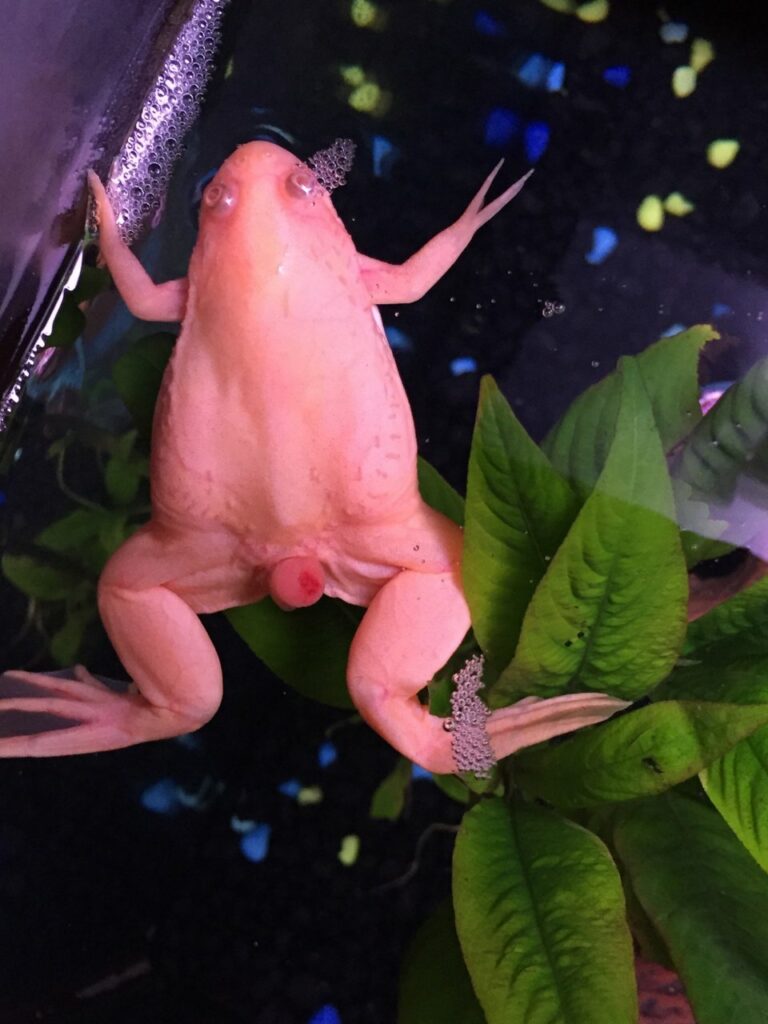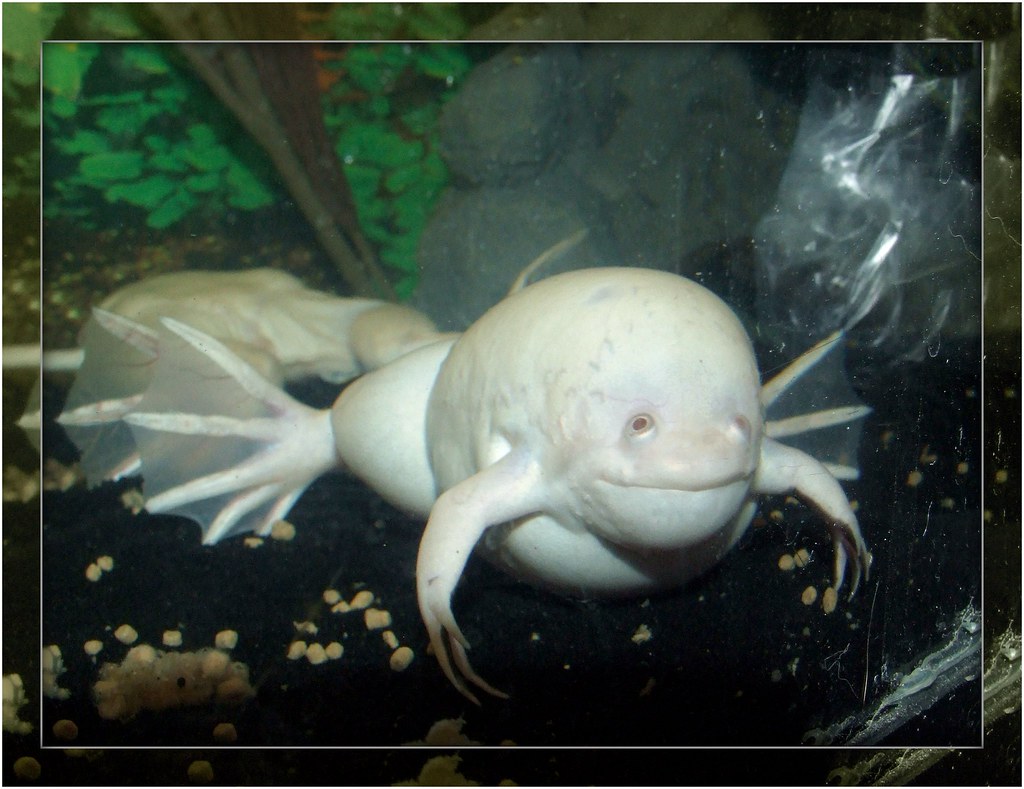Bloated Albino African Clawed Frogs are one of the most sought-after amphibians on the market. They can be found in a variety of colors and patterns, but they all have a few things in common. Bloated albino African clawed frogs range from 2-6 inches long and live for about 12 years with proper care. They usually live in tropical climates but sometimes they will travel further north during the wet season when there are more insects available for them to eat.
The Bloated Albino African Clawed Frog is an amphibian and it has a white, bloated appearance. The color of the frog’s skin may be due to nutritional deficiencies or because its environment lacks tannins. This type of frog also has two fingers on each hand that are webbed together, making it easier for them to swim in the water. These are often found near rivers and streams where they can find food like insects and larvae.

Table of Contents
Why Is My African Clawed Frog Bloated?
Bloat is a common problem in African clawed frogs. This can be caused by eating too much, not having enough water to swim in, or being stressed for some other reason. Unfortunately, there are no definitive signs of bloat that can tell you if your frog has this condition before it’s too late. It’s important to keep an eye on them and take action as soon as they show any signs of bloating!
It might also have skin discoloration, sunken eyes, depression, loss of appetite, or constipation. If your African clawed frog is experiencing any of these symptoms, take it to the veterinarian immediately for treatment.
How Do You Treat Frog Bloat?
The first thing to do if you notice that your frog has become bloated is to ensure that they have access to clean water at all times and offer them food regularly. If the problem persists then take them into seeing a vet who specializes in amphibians for diagnosis and treatment options.
Frogs with bloat often experience a variety of other health problems, so the veterinarian will treat your frog for these problems at the same time. In some cases, surgery is performed to remove part of the stomach or intestines. In most cases, the bloated stomach needs time to return to its normal size and can do this while eating. This requires a diet of smaller meals throughout the day.
The veterinarian will give you instructions on treatment and might prescribe analgesics to lessen your frog’s discomfort. In most cases, bloat in African clawed frogs is treated successfully with veterinary care.
How Do I Know If My African Dwarf Frog Is Dying?
African dwarf frogs are very popular pets, but they can be difficult to care for. Sometimes it’s hard to know if your frog is dying or not.
If you have a pet African dwarf frog, then it’s important to know the signs that your frog is dying.
The most common signs of a sick or dying frog are:
- Lack of appetite and lethargy
- Cloudy eyes and skin color changes
- Unusual behavior, such as swimming in circles or in one direction only
- Excessive breathing, like the “belly” (underneath) is expanding and contracting with every breath.
- Atrophy; loss of weight and muscle tone, causing bones to become more visible. This can be seen in the face due to sunken cheeks and chin.
Your African dwarf frog will likely not show any of these signs if he or she is just sick and needs some medicine. If you notice any of these things going on with your African dwarf frog, contact a vet immediately.
Can Dropsy Be Cured in African Clawed Frogs?

Dropsy is a disease that can cause frogs to swell up and die. Dropsy has been found in African clawed frog populations in the US, but scientists are unsure if it’s possible to cure this disease.
But, A study says yes. According to a 2011 article, published in the journal “Molecular and Biochemical Parasitology,” it is possible.
Scientists from Brazil’s Universidade Federal do Para tested a drop of an FDA-approved diuretic called furosemide on a group of African clawed frogs. The diuretic is sometimes used to treat the disease, although it has not been thoroughly tested in amphibians yet.
According to the results of the experiment, researchers found that 22 percent of adult frogs who received just one drop of medicine experienced recovery within 24 hours and were able to live normal lives. However, caution was advised when reading the study because it has not been peer-reviewed yet.
Is Bloat in African Dwarf Frog Contagious?
There is no definitive answer to this question as of yet. However, there is some speculation that bloat may be contagious among African dwarf frogs. This is based on the fact that many cases of bloat seem to occur in close proximity to other frogs, leading some people to believe that the condition may be spread through contact. However, there is no scientific evidence to support this claim, and further research is needed to determine if bloat is in fact contagious.
The bloated albino African clawed frog is a sight to behold. It is interesting to note the various ways in which this particular species of frog has evolved in order to survive in its environment. From its unique coloration to its ability to inflate its body, the bloated albino African clawed frog is a fascinating creature.